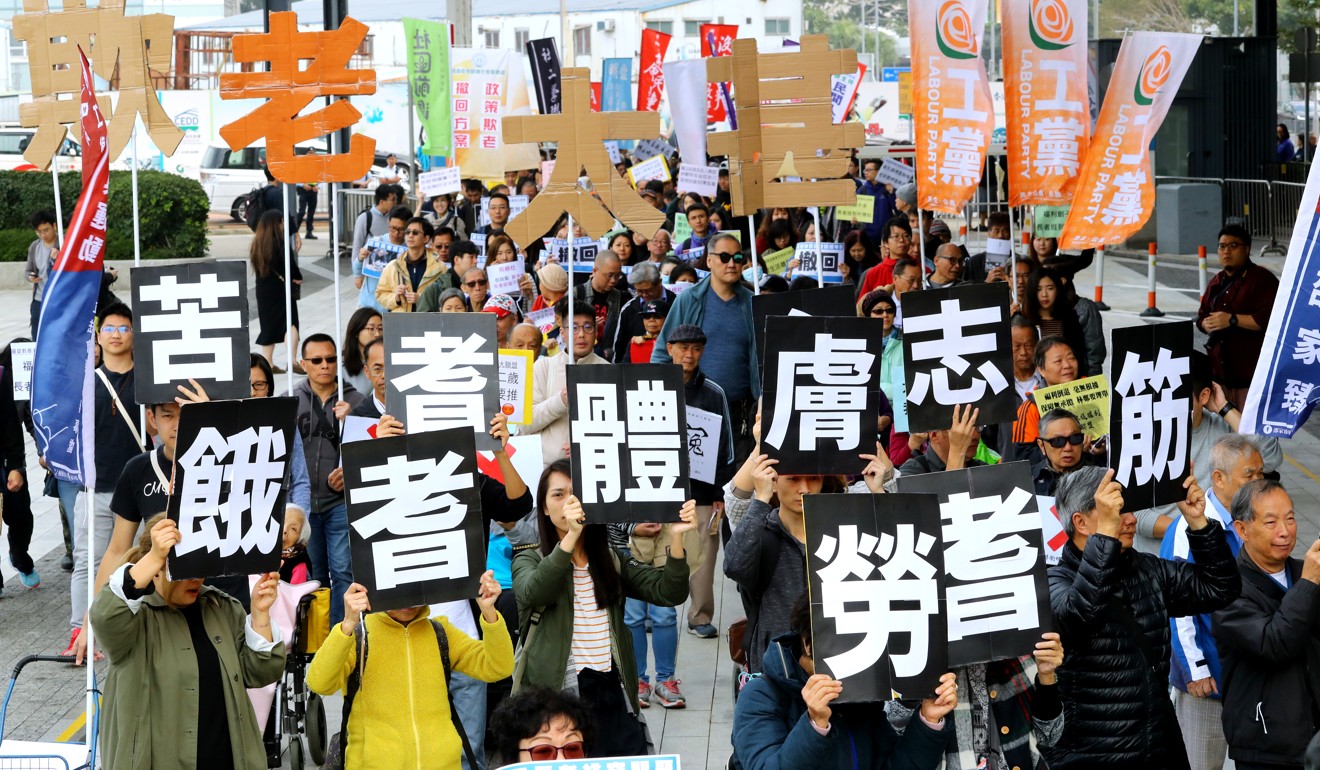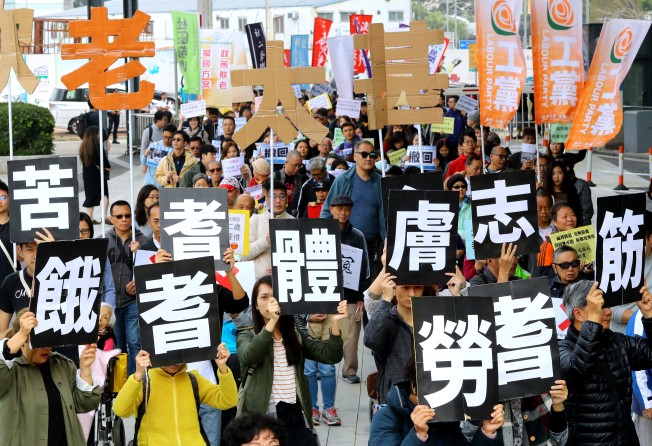
Government may cave on HK$200 penalty for elderly who don’t try to find work, as lawmakers prepare for meeting with Hong Kong leader Carrie Lam
- Pressure mounts on city’s chief executive as lawmakers stand united against unpopular welfare changes

Hong Kong officials are considering dropping plans to deduct HK$200 from welfare payments made to the elderly even if the recipients do not seek a job, another possible bow to the mounting criticism against the government’s plans to reform the system.
A government source also said officials may be open to making further changes, as lawmakers from both sides of the political divide stand united in their protests against the proposals.
“The government is considering suspending or reviewing the [HK$200 deduction],” the source said on Sunday. “The Labour and Welfare Bureau will make the final call.”
The latest move comes just ahead of Hong Kong leader Carrie Lam Cheng Yuet-ngor’s meeting with several democratic lawmakers on Monday afternoon, to discuss the controversial change to the Comprehensive Social Security Assistance (CSSA) programme.

Under the government’s proposed reforms, the eligibility age for elderly CSSA payments would be increased from 60 to 65 from February 1.
The change would mean that able-bodied new applicants aged between 60 and 64 would get less at standard rates compared with those 65 or older, who are disabled or of ill health.
For example, a single, able-bodied adult who is 60 to 64 will only get HK$2,525 (US$322) a month, compared with HK$3,585 (US$457) for people 65 or older.
The move was first proposed by Lam’s predecessor, Leung Chun-ying, under whom she served as chief secretary – the No 2 official.
Amid the backlash, Lam has announced a new monthly cash handout to compensate senior citizens who would lose out under the new rules.
The new Employment Support Supplement offers HK$1,060 per month, without conditions attached, to new welfare applicants aged 60 to 64 – the exact difference between the rates that adults and those over 65 would get under the policy changes.
But there is a catch. Recipients who do not take part in a scheme to find employment, or those who take part in the scheme but fail to meet social workers every two months for up to six months, will have HK$200 deducted from their payments.
The source stressed that any review of the CSSA reform, together with other allowances, would be based on the needs of applicants, and was not being done to silence democrats, whose criticism “would never end”.
The Labour and Welfare Bureau would neither confirm nor deny the latest changes, but only referred the Post to earlier remarks by officials on the CSSA scheme.
Labour Party lawmaker Fernando Cheung Chiu-hung said the latest move showed the change in eligibility had not been carefully thought out in the first place.
He cited democrats’ meeting with Chief Secretary Matthew Cheung Kin-chung and welfare chief Law Chi-kwong, where he said neither could provide the demographic breakdown in the age group of 60-64.
“How many among the 60-64-year-old applicants face health problems; occupation; how long they received CSSA; employability – none of these could be provided,” Fernando Cheung said.
The main assumption, he said, was that the government estimated about 70 per cent in the preceding age group 55 to 59 were in poorer health or had a disability, so most of those aged between 60 and 64 would not be affected.
“They’re just taking it for granted,” he said.
Social welfare sector lawmaker Shiu Ka-chun said that even if it withdrew the HK$200 “penalty”, the government was still falling some way short of meeting the expectations of democrats.
He said the government should stop and review the entire CSSA system, noting there was wide bipartisan support for such a move.